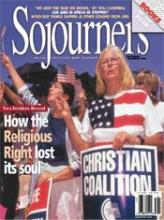Can movies be disenfranchised? They can if they don’t follow the usual Hollywood formula of babes, bullets, and blood, and they certainly can if they’re also about the disenfranchised in a tough and non-gooey way. It’s a double whammy few films are able to overcome.
Not so with those showcased at the Human Rights Watch International Film Festival. Held each year in New York City by Human Rights Watch, the festival highlights more than 30 films and videos that address issues of oppression and social injustice. Instead of the usual bombardment of Hollywood hoopla, viewers can explore topics such as the struggle for women’s rights in Peru and the revival of chain gang labor in the American prison system. Think of the festival as a refuge for marginalized movies from around the world.
Three notable films shown at the June event have since hit theaters and soon will be available on video. The most prominent of these is Regret to Inform, a personal portrayal of Vietnam War widows scheduled to air January 24 on PBS’ "P.O.V." (Point of View). The documentary follows director and narrator Barbara Sonneborn as she travels to the small Vietnamese farming town where her husband was killed during the war. Along the way, she includes interviews with other widows, including those from North and South Vietnam.
Regret to Inform opens with Vietnamese women singing "Oh husband, where are you?" The rest of the film illuminates the longing that underlies that question. In addition to the interviews, Sonneborn includes family snapshots, military memos, and archival war footage of a conflict described by one refugee as "all gray, like the smoke of the burning villages."
There are many poignant moments, including those in which the widows display pictures of their husbands from about 30 years before; today, they look old enough to be the men’s mothers. "If you weren’t dead, you weren’t safe," one of them bitterly recalls.
Read the Full Article
